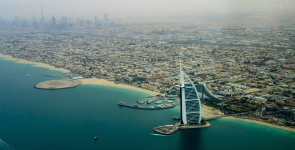The Maldives has recently found itself at the intersection of major geopolitical dynamics, particularly in its relations with China. Over the years, there has been a significant enhancement in Maldives-China relations, especially in terms of development cooperation. This relationship is important in understanding the balance of power dynamics in South Asia and offers crucial lessons for the Maldives in its development plans.
Understanding the complex dynamics of international relations, particularly between smaller states like the Maldives and global powers like China, requires a nuanced approach. While the public portrayal of the Maldives-China alliance often emphasises shared development goals and mutual interests, it’s important to acknowledge the potential for underlying strategic agendas that might not be immediately apparent.
In this context, the relationship between the Maldives and China, although officially described as a partnership focused on development and individual preferences of the Maldives, may involve more intricate geopolitical calculations. Behind the veneer of development cooperation, there could be strategic interests at play for both nations, influenced by the broader geopolitical context of South Asia and beyond.
Maldives’ geostrategic location in the Indian Ocean makes it a crucial player in China’s Maritime Silk Road Initiative (MSRI). China’s active pursuit of the MSRI plan, including dual-use infrastructure projects, reflects the deepening of China-Maldives relations. High-level visits, aid, loans, and strategic projects like the iHavan project, underline China’s intent to secure its position and resource flows in the region.
China’s engagement in the Maldives is not just about economic investment but also has significant strategic objectives. The increasing Chinese economic presence might impact the historically close relationship between India and the Maldives. This involvement is part of a broader strategy by China to expand its global military ambitions and secure its interests in the Indian Ocean region.
The complex rivalry between India, China, and the US in the Maldives, especially in the economic and military spheres is noteworthy. The Maldives’ domestic policies and its manoeuvring between these major powers reflect its attempts to navigate an advantageous course amidst these external influences.
The Maldives must look beyond a single-country focus for its development financing. Engaging with a broader range of international partners can mitigate potential risks associated with over-reliance on one nation. The Maldives’ current economic strategy, heavily reliant on China, places it in a vulnerable position. This over-reliance can lead to economic dependency, limiting the nation’s bargaining power and autonomy in international relations. Diversification means actively seeking partnerships with other countries and international organisations. This could include fostering stronger ties with neighbouring South Asian countries, engaging with Western nations, and exploring new alliances within ASEAN or the European Union.
It’s crucial for the Maldives to critically assess the long-term economic and strategic impacts of infrastructure projects financed by foreign loans. This involves evaluating project viability, repayment capacities, and the implications for national sovereignty. Every infrastructure project financed by foreign loans must undergo a comprehensive assessment of its economic viability. This means conducting thorough cost-benefit analyses to ensure projects do not lead to unsustainable debt.
The internal political dynamics of the Maldives play a significant role in shaping its foreign relations. Ensuring a stable and democratic domestic political environment is essential for maintaining balanced external relations. The Maldives’ domestic politics have seen significant turmoil, impacting its foreign relations. A stable and democratic political environment is crucial for creating consistent and coherent foreign policy. Political stability would also make the Maldives a more attractive destination for diverse international investments. Investors and international partners seek predictable environments with clear policies and strong governance.
While leveraging the benefits of development cooperation with China, the Maldives should maintain its strategic autonomy, ensuring that its foreign policy decisions align with its national interests. Maldives must ensure that these benefits do not come at the cost of its strategic autonomy. This involves carefully balancing economic cooperation with national security and sovereignty considerations. The Maldives should leverage its strategic location in the Indian Ocean to its advantage, engaging with China in a manner that benefits its development goals while maintaining friendly relations with other major powers.
The evolving Maldives-China relationship, marked by increasing development cooperation and strategic engagement, presents both opportunities and challenges for the island nation. The Maldives must navigate this partnership with a strategic approach that ensures its national interests are protected while benefiting from development cooperation. The lessons drawn from this relationship are crucial in shaping the Maldives’ future in the complex geopolitical landscape of South Asia.



















